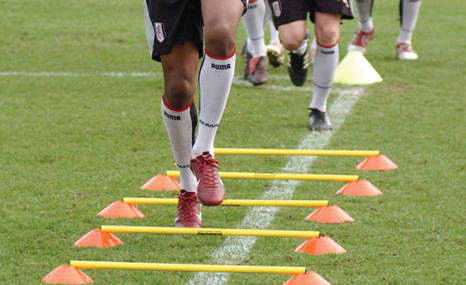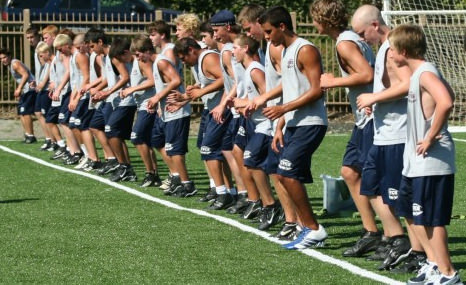
Camps &
Clinics
Elevating the team
Camps and clinics provide an opportunity to develop teams, large groups and sport specific elite performance athletes. .
Single day or multiple days of instruction are available and teach basic principles of movement as well as techniques and mechanics to improve speed and agility, mobility, stability, power, strength and sport specific development.
The Group Setting for success
Achieve your athletic and sports related goals with the fun, energy and excitment of training with friends and teams.
As a group or team of athletes we can achieve greater improvements within the team dynamics of play, comradery, motivation and FUN!
We’ve designed our camps and Clinics to not only teach young athletes the basics of functional movement but as well as the invaluable life lessons of being fit and the health benefits of an active lifestyle.

Training Your Team's Way
Many Training Options Available:
1. Team Practice Camps
2. Speed and Agility
3. Sports Specific Skill Training
4. Athletic Fundamentals
5. Stellar Kids Fit Camps
6. 2 Week Sports Prep Camps
7. Host Your Own Camp - Ask about this. Great Fundraiser Opportunity!

The Benefits and Pitfalls of Sports Specialization
One of the more difficult decisions a parent has to make regarding a child's athletic career involves the present day obsession with sports specialization (the practice of focusing increased time, instruction, and training specifically for one sport). From Olympic hopefuls to mega-stars like Tiger Woods, specialization has made superstar athletes out of high school students. Many even begin their chosen sport as toddlers, and while a select few go on to make millions, many more suffer from injuries or burn-out. It's simply impossible to forecast, as a child, if his or her talents are prolific enough to one day arrive at super stardom. Nevertheless, specialization via "elite" coaching and clubs is here to stay.
The International Federation of Sports Medicine has declared that specialization has no educational or physiological justification. Many other organizations have concurred, and The American Academy of Pediatrics recommends unstructured play and a variety of sporting activities, stating that it promotes creativity.
And then there's the question of whether specialization even works. Even if it does, is it logical to specialize when only a small handful of athletes will ever achieve professional status? Researchers have stated that performance at one age of childhood is not even a reliable predictor of performance just two to five years later. Furthermore, Soviet studies (they've been specializing a lot longer than we have!) have shown that most young athletes who specialize attain their best performance by age 16, plus they're more likely to quit their sport sooner than athletes who engage in diverse programs. Other researchers have concluded that specialization carries no performance related advantages, and that some athletes suffer from social isolation, unhealthy self-concepts, and burn-out.
*From: The Dark Side of Youth Sports by Shane Murphy PhD
Playing sports is fun. It gives your child something to do and a group to belong to. They have a group of friends that have the same goals and interests.
Research has found that kids that play sports, especially girls, are more likely to have a positive body image and higher self-esteem. They also are less likely to be overweight.
Kids involved in sports are less likely to take drugs or smoke because they realize the impact that these destructive activities can have upon their performance. Girls who play sports are also less likely to become pregnant.
Physical activities are a good way to relieve stress and reduce depression.
Sports help kids develop discipline. They learn to set goals and then work to achieve those goals. They learn that by working hard they can accomplish the things that they want to in their lives.
Kids who play sports learn quickly that sometimes you win and sometimes you lose. They learn to be a good sport in both situations. It also helps them learn to deal with disappointment and go on.
Statistics show that kids who are involved in sports while in high school are more likely to experience academic success and graduate from high school. Sports teaches children that nothing is handed to them and that they must work hard at something in order to succeed. This same attitude spills over into the classrooms as children work hard to achieve success.
Sports helps develop teamwork and leadership skills. Kids learn very fast that they have to work together as a team to win the game.
Motor skills, strategic thinking, and even math skills are learned by playing sports. Students develop strategic thinking as they figure out plays and the best way to get around a player or score a goal. Math skills are used as they calculate scores and stats.
Regular exercise increases quality of life. Children who exercise are more likely to continue.
